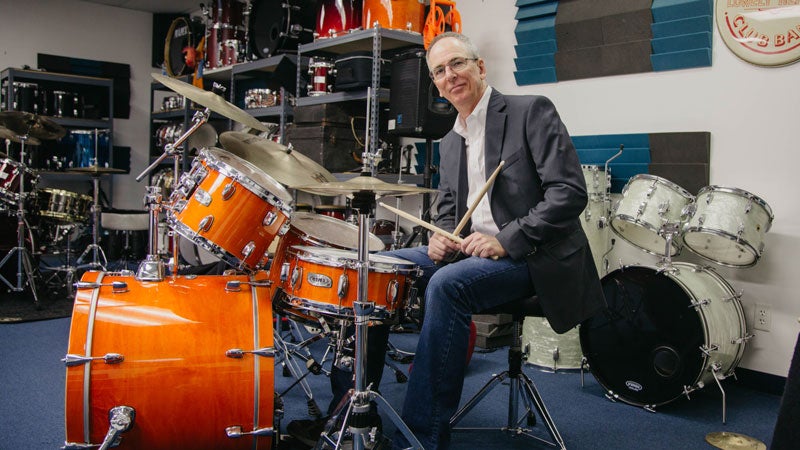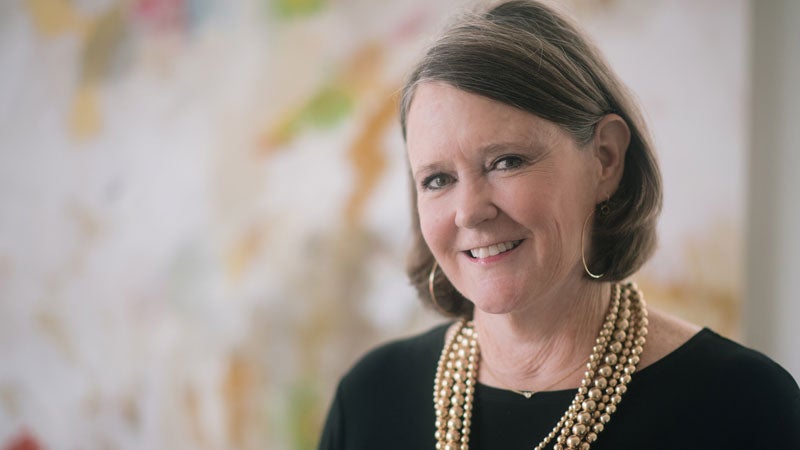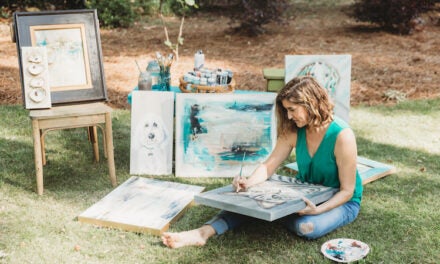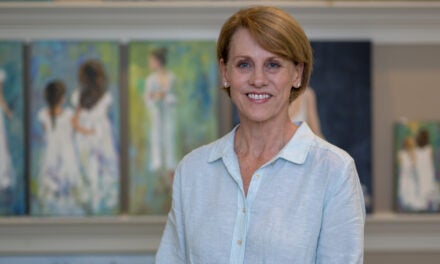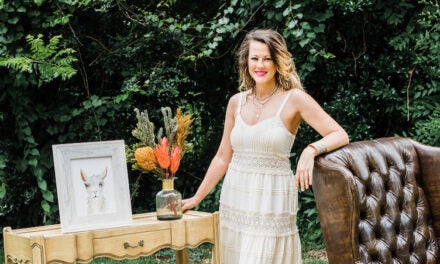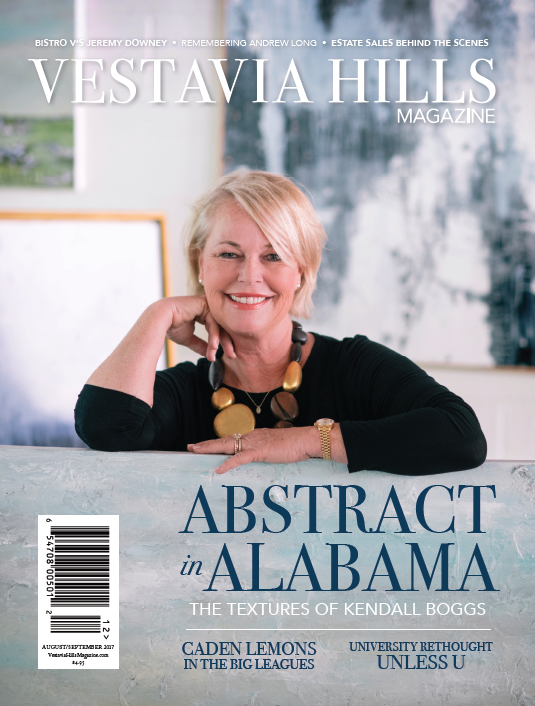Russ Maddox’s students have gone on to become band directors, composers for video games, and professional musicians for symphonies and bands. Today you’ll find him at Birmingham School of Music, which he started as a drum school 21 years ago. He also knows his way around Vestavia Hills High School quite well. He’s a 1981 alum, has three kids who graduated in the early 2000s, and was a drum instructor there for nine years, 1996-2005.
How did you get into music personally?
My grandmother gave me my first drum at age 5, and I literally have been playing drums and percussion since then. When I was 13, I was on the radio for the first time. I have been playing in local cover bands around the Southeast my whole life.
How did Birmingham School of Music get started?
Most of the time when you are a musician and your friends find out you are a musician, it won’t take long for them to say “Will you teach my child?” In the early ’90s, I started doing a student or two, and the next thing I knew—kind of by accident—I had 40 students part time in addition to my full-time gig. I quit my corporate gig and became an entrepreneur, and that was 21 years ago.
What might people not know about the school?
We don’t do the typical annual recital. In fact, we don’t use the word recital. Our student concerts at Birmingham School of Music are at Moonlight on the Mountain, a listening venue in Bluff Park. The last time we had a student play Marilyn Manson on guitar, and right after that we had a student play classical guitar, and then a girl got up and sang a Broadway show tune. I always claim that it’s the best variety show going on in Birmingham, it’s just put on by kids.
In addition to that typical one-on-one private lesson for guitar, piano, drum set, voice, violin and cello, we also have our ensemble lessons in rock, adult vocal, a cappella, classical guitar, jazz band and musical theater, so students can apply what they are learning.
Can you describe any specific moments where you thought, “This is so worth it”?
What’s amazing to me is to watch a student who is severely autistic in their social skills, and then all of a sudden the concert comes and they are a different person. They are moving around and excited to be in front of everyone, and they are singing. It’s amazing. Music has impacted the way they feel about themselves and the way they communicate with others, and it’s given them a purpose.
Why is important to study music?
Students who study music are smarter kids. The reason is it stimulates them to think and use their brain in a different way, and so it’s contributing to all other aspects to academia. When parents are coming to me to try to juggle their schedule around sports, I am always trying to remind them that music really needs to be considered more valuable than a fun something to do after school because of its academic contributions. If I can share music with other people, I am making their life better because they have music in it.

